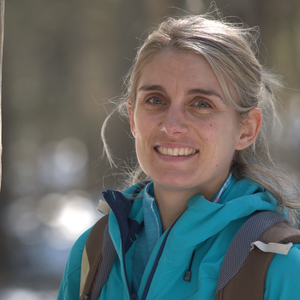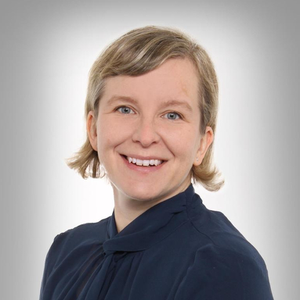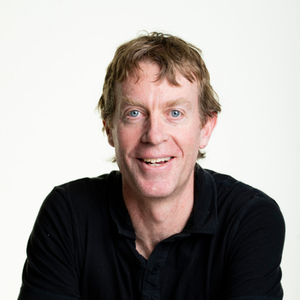
Nerea Abrego
Academy research fellow at University of JyväskyläTitle: From pattern to process in community ecology: challenges and prospects
Summary: A central aim of community ecology is to gain mechanistic understanding about how different processes jointly create variation in natural communities and to use such understanding for making predictions about how the ongoing global change will impact biodiversity. However, as I argue in this talk, community ecology currently lacks a general, quantitative synthesis of the relative contributions of the processes structuring communities, hindering the transformation of community ecology into a predictive science. One important reason for this is that most empirical studies are based on non-manipulative observational data, whereas manipulative experimental data would be needed to yield undisputable causal inference on the underlying processes. Furthermore, while theoretical metacommunity frameworks assume discrete local communities linked by dispersal, there is high disparity among empirical studies in how (and if) the boundaries of local communities are defined. This mismatch between theoretical and empirical research hampers the possibilities to synthesize and compare the results from empirical studies, especially given that the relative effects of different assembly processes vary across spatial scales. In my talk, I derive on case studies to illustrate the current mismatch between theory and data, and suggest a framework for how these two could be more effectively linked in the future.
Nerea Abrego is an ecologist broadly interested in community ecology, especially in linking general theory to empirical research. While her research mostly focuses on understanding how ecological communities are structured across temporal, spatial and environmental gradients, an important part of her research is devoted to resolving methodological challenges that come along with data on ecological communities. In particular, she is interested in developing empirical methods for efficiently acquiring community data and statistical methods for efficiently analyzing such data.

Bengt-Gunnar Jonsson
Professor at Mid Sweden UniversityTitle:
The perceived trade-off between climate mitigation and biodiversity in boreal forests
Abstract:
"We face two parallel crises, climate change and biodiversity loss. Both threaten our society and ecosystem functioning. The boreal forests in the Nordic countries harbor unique natural values and at the same time may play a role for climate mitigation. A current narrative is that we need to choose whether to use these forests to provide biomass for substitution of fossil sources or to protect them for biodiversity conservation. That is, that there is a clear trade-off to consider and where the arguments talk in favor for increased management intensity and harvest levels to move from a fossil-based economy to a bioeconomy. I will challenge this perceived trade-off as the potential carbon sequestration in Nordic boreal forests outperform the benefits from substitution for the critical coming decades. Lower harvest rate would provide significant climate benefit and at the same time allow options for improving biodiversity status. This window of opportunity should be used to identify means for improving the green-infrastructure through landscape level planning as well as time for developing alternative management that support forest landscape multifunctionality.
Prof Jonsson is a forest ecologist and conservation biologist working at the interface between research and its implementation for more than 30 years. His research field include, forest history and dynamics, ecology of dead wood species and more recently studies on landscape level planning and climate mitigation.

Aino Juslén
Director of Nature Solutions Unit, SYKE (starting Jan 2023)Title: The need and processing of information for nature solutions
Abstract:
The spread of open data and open science principles and the development of digital systems have allowed enormous opportunities in the sharing and research of different types of nature data. In Finland, especially, the collection and sharing of species information is advanced. Currently, integration of species information data from Finnish Biodiversity Information Facility (FinBIF) with habitat type and remote sensing data from Finnish Ecosystem Observatory (FEO) is being developed. In addition to the diversity of data types and technical challenges, the readiness of different parties to use information in the practical work against nature loss needs to be developed. In my presentation, I describe the flow of observation data from field to research, land use planning and decision-making in Finland and at the EU level, both in the present moment and in future visions.
Aino Juslén has been working in the Finnish Museum of Natural History Luomus from 2010, first as the Unit Director Zoology and from 2020 as the Director. In the beginning of 2023 she will start as the Director of Nature Solutions Unit in the Finnish Environment Institute. Juslén is the Vice-Chair of the Distributed System of Scientific Collections (DiSSCo), which is on the European research infrastructure roadmap. Her expertise covers especially the development of gathering and use of species data in the decision-making and red-listing of species.

Craig Primmer
Professor of Organismal and Evolutionary Biology at University of HelsinkiTitle: Beyond genome scans: The “what”, “why” and “how” behind a large-effect locus linked with Atlantic salmon age at maturity
Abstract:
A common aim in biological research, linking genotype with phenotype, has seen dramatic taxonomic diversification in recent years as new technologies have enabled genomic approaches collectively known as ‘genome scans’ to be applied in almost any species. However, such diversification is not as apparent when it comes to understanding the biological processes behind identified associations, especially considering loci associated with life-history traits. Age-at-maturity is closely linked to fitness in many species, with the timing of maturation often involving trade-offs. For example, delayed maturation can lead to larger body size, higher fecundity and/or increased offspring survival, but longer generation times can carry an increased mortality risk prior to reproduction by prolonging pre-maturity life stages. Genome-wide association studies (GWAS) in Atlantic salmon earlier identified a single locus that associates strongly with age-at-maturity (sea-age), and a single nucleotide polymorphism (SNP) located near the gene vgll3 explained 39 % of the phenotypic variation in maturation age. The relatively simple genetic architecture of this trait combined with the features of Atlantic salmon as a model system offer a good opportunity to better understand the ecological drivers and molecular mechanisms underlying this locally adapted life history trait.
In this talk, I will summarize the group’s recent research investigating what phenotypes are influenced by vgll3, why those differences affect maturation age, how these changes are induced at the molecular level and how this information can be used in salmon conservation and management.
I am a professor of genomics at the University of Helsinki, and am based in the OEB research program. My second affiliation is Institute of Biotechnology in HiLIFE. I am the Principal Investigator of the Evolution, Conservation, and Genomics (EvolConGen) Research Group. We capitalize on the opportunities provided by the relatively simple genetic architectures of several life history traits in fishes, combined with the strengths of commercially important fishes as models for functional genomic, ecological and evolutionary research. The group aims to link genotype, phenotype and fitness of important life-history traits using approaches ranging from investigating the cellular-level processes in the laboratory to estimating reproductive success in completely natural populations. We also apply the knowledge obtained for improving conservation and management of these species.